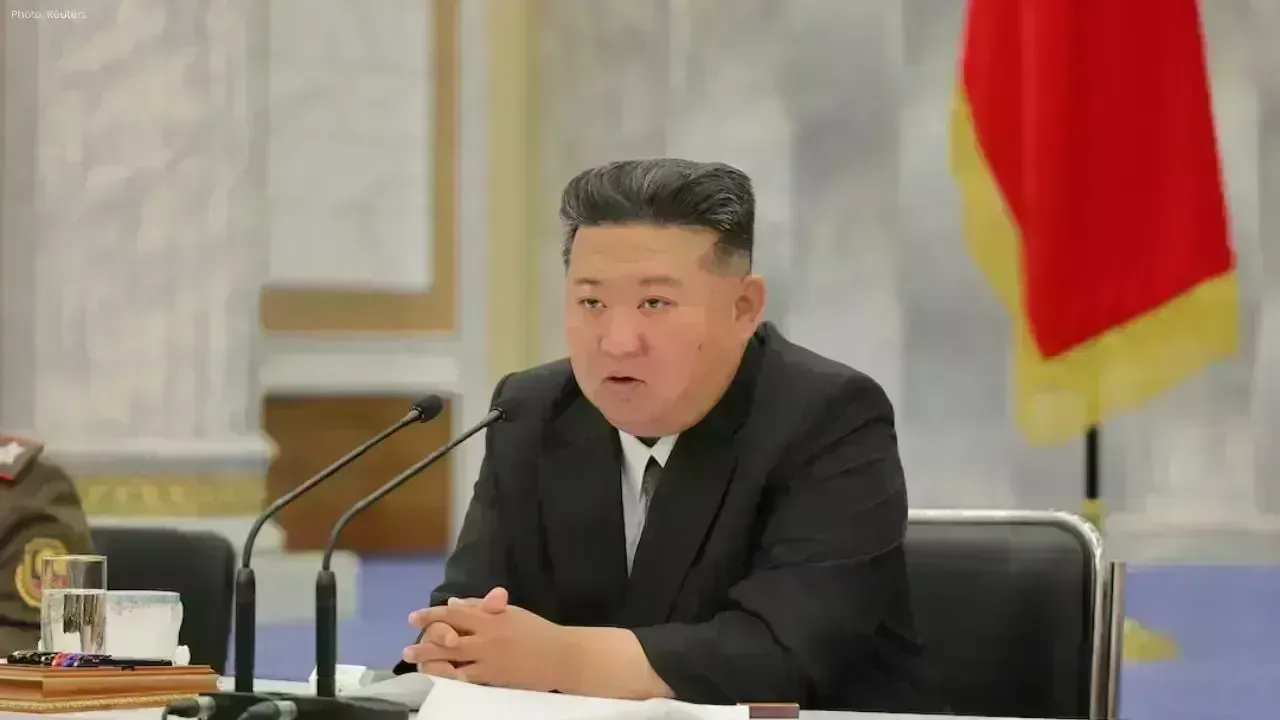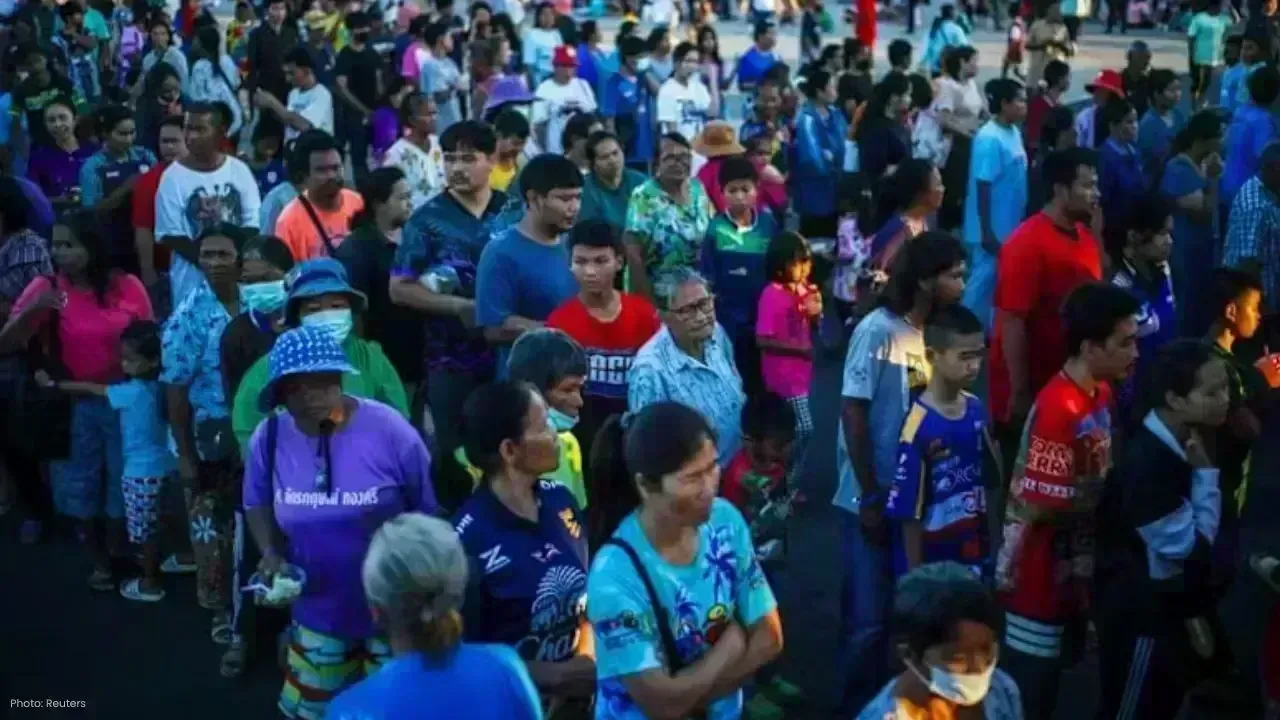You have not yet added any article to your bookmarks!

Join 10k+ people to get notified about new posts, news and tips.
Do not worry we don't spam!

Post by : Anis Farhan
In Malaysia, politics has long been shaped by coalitions, ethnic-based parties, and senior leadership. However, the political dynamics are shifting. With the implementation of the Undi18 constitutional amendment, which lowered the voting age from 21 to 18 and introduced automatic voter registration, millions of young Malaysians have entered the electoral arena.
This surge of youth voters—making up nearly half of the electorate in 2025—has transformed Malaysia into one of the most youthful democracies in Southeast Asia. Their influence extends beyond domestic politics, as the choices they make could also reshape the trajectory of regional governance and cooperation.
The implications of Malaysia’s youthful voter base go beyond electing a government; they could redefine policies on climate change, economic development, digital transformation, and democratic freedoms across Southeast Asia.
Malaysia’s youth population has grown into a formidable political bloc. According to electoral commission data, nearly 7.8 million new voters have been added since the adoption of Undi18. This makes young Malaysians the largest demographic group in the electorate, surpassing middle-aged and senior voters.
Unlike previous generations, young Malaysians are less bound by traditional party loyalties and more concerned with practical issues such as:
Affordable housing and cost of living
Job opportunities in a digital economy
Climate change and environmental sustainability
Political transparency and anti-corruption reforms
Expanding social freedoms and inclusivity
This shift means that political parties can no longer rely solely on ethnic or regional identity politics to secure victory. Instead, they must address the aspirations of a globally connected and socially aware generation.
The immediate effect of youth votes in Malaysia has been the rise of new parties and the decline of older, dominance-based coalitions.
Emergence of Youth-Centric Parties: New political movements and parties led by young leaders have gained traction, offering fresh narratives of inclusivity, reform, and modernization.
Decline of Identity Politics: While ethnic-based politics remains relevant, younger Malaysians increasingly demand policies that benefit all citizens regardless of race or religion.
Digital Campaigning: Social media platforms such as TikTok, Instagram, and Twitter have become the main battlegrounds for political campaigns, replacing traditional rallies and print media.
For citizens, this means electoral debates now center on everyday issues such as food prices, job opportunities, and internet connectivity—topics that resonate directly with youth priorities.
Young Malaysians are pushing for economic policies that address structural challenges and provide future-ready opportunities.
Gig Economy Regulations: Youth workers, many of whom rely on gig platforms, demand better protections, minimum wage standards, and access to healthcare.
Entrepreneurship Incentives: Younger voters favor policies that encourage startups, innovation hubs, and SME support.
Affordable Housing: Housing affordability has become a rallying point for urban youth struggling with high property prices.
Green Economy: Climate-conscious youth are demanding government investment in renewable energy, sustainable farming, and eco-friendly industries.
As these policies gain prominence in Malaysia, they could serve as a blueprint for neighboring Southeast Asian countries facing similar youth-driven demands.
Malaysia’s political transformation does not happen in isolation. As a key member of ASEAN, Malaysia’s domestic policies and political climate influence the region’s broader trajectory.
Democratization Trends: If Malaysia demonstrates a successful transition toward youth-driven, reformist governance, it may inspire similar movements in countries like Thailand, Indonesia, and Myanmar.
ASEAN Policy Shifts: Youth-driven priorities in Malaysia—such as climate action, digital economy, and human rights—could reshape ASEAN’s collective agenda.
Regional Stability: A politically empowered youth in Malaysia may demand stronger stances on corruption, governance, and international cooperation, influencing ASEAN consensus.
The regional ripple effect could be profound. For instance, Malaysia’s climate policies shaped by youth voters might push ASEAN to adopt stronger commitments to green energy or collective environmental protection.
Malaysia is not alone in experiencing the rise of youth political power. Similar patterns are evident in other Southeast Asian countries, providing useful comparisons.
Thailand: Student-led protests have challenged traditional power structures, demanding constitutional reforms and greater freedoms.
Indonesia: Youth engagement in elections has fueled discourse on digital transformation, environmental issues, and corruption.
Philippines: Young voters have shaped debates on education, labor rights, and governance transparency, although dynastic politics remains influential.
Malaysia’s trajectory differs in one crucial way: the structural legal changes of Undi18 institutionalized youth power in a way few neighbors have matched. This makes Malaysia a testing ground for how young voters can permanently reshape national and regional politics.
One of the defining features of Malaysia’s youth vote is its reliance on technology. Young Malaysians are highly active online, using social media to:
Share political content and debates
Fact-check claims and expose corruption
Mobilize peers for rallies and civic movements
Engage directly with politicians through livestreams and Q&A sessions
This digital-first approach to politics creates both opportunities and risks. On one hand, it ensures greater participation and transparency. On the other, it leaves youth voters vulnerable to misinformation, polarization, and algorithm-driven echo chambers.
While the rise of youth voters offers promise, it also presents challenges:
Policy Inexperience: Younger voters may prioritize short-term gains without fully considering long-term trade-offs.
Fragmentation of Votes: Youth preferences are diverse, which could splinter the vote and create unstable coalition governments.
Populism Risks: Charismatic figures may exploit youth concerns with unrealistic promises, leading to political volatility.
Misinformation: Social media campaigns are vulnerable to fake news, which could sway voting behavior.
These challenges highlight the importance of civic education and informed political participation, ensuring that youth influence is constructive rather than destabilizing.
The rise of youth votes creates new winners and losers in Malaysia’s political and economic landscape.
Winners:
Reformist parties that prioritize inclusivity, transparency, and innovation.
Digital-savvy politicians who connect with youth through modern platforms.
Social movements advocating for climate action, gender equality, and economic reform.
Losers:
Traditional political elites relying solely on identity politics.
Institutions resistant to reform or transparency.
Businesses that fail to adapt to sustainability demands.
The outcome of Malaysia’s next general election could determine whether youth voters solidify as a transformative force or remain an unpredictable element of political change.
Malaysia’s youth-driven political shift resonates with a broader global trend. Across Asia, Africa, and Latin America, young voters are demanding new governance models that prioritize sustainability, equity, and digital innovation.
If Malaysia successfully channels youth energy into constructive political outcomes, it could become a model for other developing nations struggling to balance modernization with democratic reforms. Conversely, if youth engagement leads to instability, it may serve as a cautionary tale for other Southeast Asian states.
The true test of Malaysia’s youthful electorate lies in whether their energy translates into sustained political engagement beyond elections. Key questions remain:
Will young Malaysians continue to participate actively in governance and policymaking?
Can youth-driven reforms withstand challenges from entrenched elites?
How will Malaysia’s youth priorities influence ASEAN’s collective agenda?
In 2025, Malaysia stands at a crossroads. With nearly half of its electorate under 35, the choices made in this political season could ripple across borders, influencing the trajectory of Southeast Asian politics for decades to come.
This article is intended for informational and editorial purposes only. It reflects current political and social dynamics in Malaysia and Southeast Asia and does not constitute political advice or endorsement of any party or candidate.










Thailand Defence Minister Joins Talks to End Deadly Border Clash
Thailand’s defence chief will join talks with Cambodia as border clashes stretch into a third week,

India Raises Alarm Over Fresh Attacks on Hindus in Bangladesh
India has condemned recent killings of Hindu men in Bangladesh, calling repeated attacks on minoriti

Sidharth Malhotra & Kiara Advani Celebrate Baby Saraayah’s 1st Christmas
Sidharth and Kiara share adorable moments of baby Saraayah’s first Christmas with festive décor and

South Korea Seeks 10-Year Jail Term for Former President Yoon Suk Yeol
South Korea’s special prosecutor demands 10 years for ex-President Yoon Suk Yeol on charges includin

Salman Khan’s Exclusive 60th Birthday Bash at Panvel Farmhouse
Salman Khan to celebrate his 60th birthday privately at Panvel farmhouse with family, friends, and a

Dhurandhar Breaks Records with Rs 1006 Cr, Becomes Bollywood’s Biggest Hit
Dhurandhar rakes in over Rs 1006 crore worldwide in 21 days, becoming Bollywood’s highest-grossing f